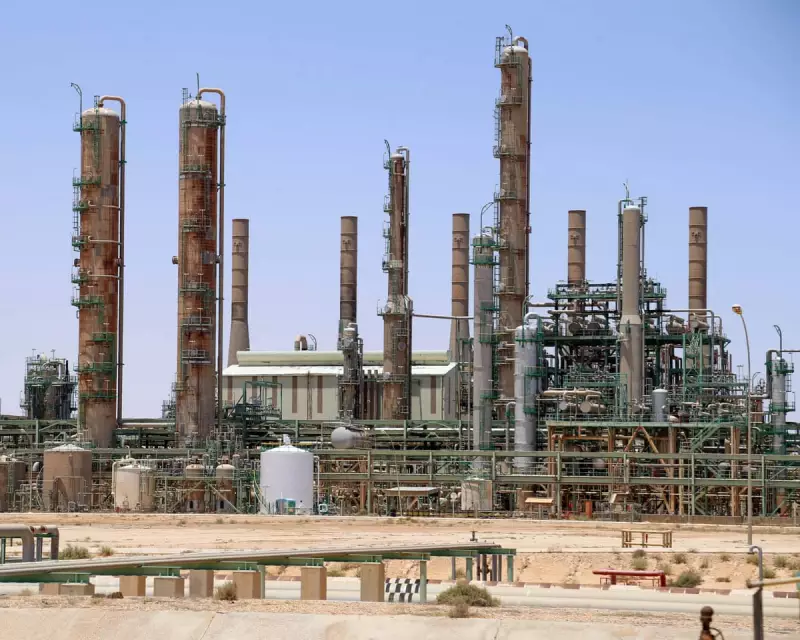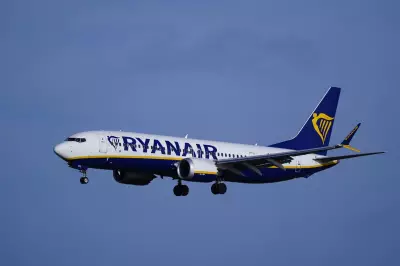
A devastating report has uncovered how state-sanctioned fuel smuggling operations have cost the Libyan people approximately $20 billion (£15 billion) in lost revenue between 2022 and 2024, with some of the illicit fuel being smuggled into Sudan where it has helped prolong the country's devastating civil war.
The Systematic Pillaging of Libya's Resources
The comprehensive investigation by policy body The Sentry reveals that politicians and security leaders who publicly claim to serve Libyan citizens have actually been the chief architects of the country's massive fuel-smuggling industry. The report states these officials often operated with backing from foreign states while systematically plundering Libya's primary revenue source.
Fuel smuggling has long been problematic in Libya, but the report indicates the scale escalated dramatically after 2022 following leadership changes at the National Oil Corporation (NOC). The NOC stands as one of the few state institutions that operates across Libya's east-west divisions, which have effectively created two separate governments since Muammar Gaddafi's fall in 2011.
How the Smuggling Operation Worked
The NOC implemented a system where abundant Libyan crude oil was exchanged for imported refined fuel through swap agreements. Rather than being distributed within Libya's domestic market at subsidised prices as intended, this imported fuel was instead resold abroad at enormous profits by criminal networks.
By late 2024, the NOC's fuel imports had surged dramatically from approximately 20.4 million litres per day in early 2021 to a peak exceeding 41 million litres per day. The Sentry's analysis confirms that no legitimate increase in domestic demand could justify such a massive escalation, with investigators concluding that more than half of the imported refined petrol was sold on by criminal enterprises for private profit.
The report emphasises that given its enormous scale, fuel smuggling can no longer be dismissed as merely a byproduct of weak governance. Instead, by 2021, Libya's ruling elite had effectively embraced it as part of a broader, systematic strategy to siphon massive wealth from the population.
International Consequences and Domestic Impact
The smuggling operation has had severe consequences beyond Libya's borders. Significant quantities of fuel have been smuggled into Sudan, where The Sentry reports it has contributed to prolonging that country's civil war. Additional destinations for the smuggled fuel include Chad, Niger, Tunisia, Albania, Malta, Italy and Turkey.
Transportation methods varied widely, involving various categories of vessels, tanker trucks, smaller vehicles, and even rogue pipelines depending on geographical context and specific business models.
Domestically, this illegal fuel exportation has caused severe shortages within Libya, forcing ordinary citizens to pay significantly higher prices at unofficial outlets, particularly in peripheral areas. The smuggling has also deprived the Central Bank of Libya of crucial dollar revenues while undermining the integrity of the NOC, whose hydrocarbon exports account for virtually all of Libya's national income.
The Sentry calculates that in 2024 alone, more than $6.7 billion worth of fuel was smuggled out of the country – sufficient funds to more than triple Libya's spending on healthcare and education combined.
Calls for Accountability and International Action
The vast increase in fuel imports occurred during the 30-month chairmanship of Farhat Bengdara at the NOC, who left his position in January 2025. The NOC has stated it abandoned the swap system in March 2025, and fuel import quality from January to September fell by 8% compared with the previous year. However, energy experts note that Libya continues to import far more fuel than it could possibly need for domestic consumption.
In response to the findings, The Sentry is calling for a Western-backed investigation into Libyan oil officials known to be at the heart of the fuel-smuggling enterprise. The organisation also demands international assistance to ensure Libya's own investigative bodies can properly identify those who have stolen funds from the Libyan people.
Bengdara told The Sentry that under his leadership, the NOC remained transparent and proactive in cooperating with national institutions and international organisations. He stated he had submitted reform proposals to the Council of Ministers and the Supreme Council for Energy Affairs aimed at reducing reliance on subsidised diesel in electricity generation.
These proposals reportedly included increasing natural gas production, promoting gas and renewable energy for electricity generation, and initiating the gradual removal of fuel subsidies.





